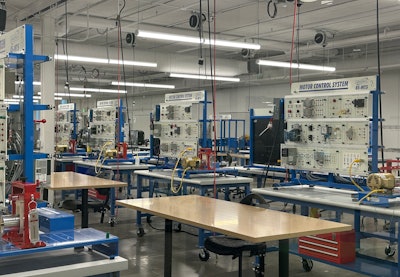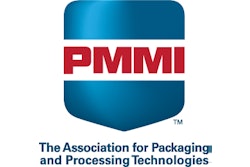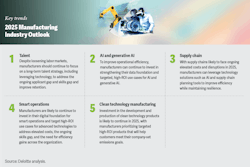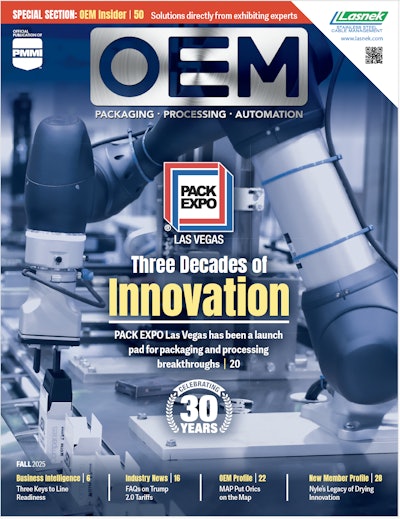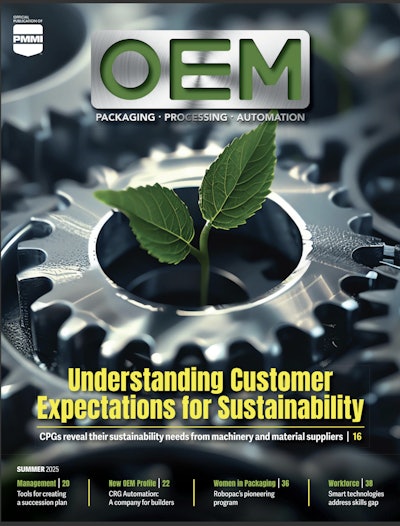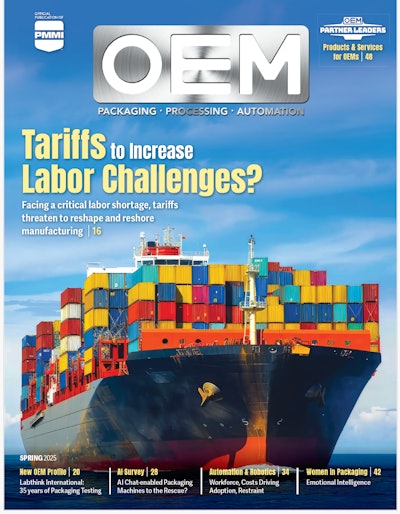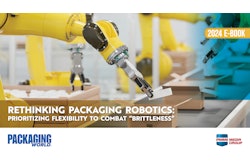Industry leaders shared their strategies in recruitment, educational partnerships, and utilization of industry resources at a December workforce discussion.
Hosted by PMMI at the College of Lake County’s new Advanced Technology Center in Gurnee, Illinois, the event provided a platform for manufacturers to explore collaborative approaches and innovative solutions.
Identifying workforce issues and strategies to address them
Manufacturing leaders identified several factors contributing to workforce challenges and shared their insights on how to alleviate some issues.
The discussion touched on the role of technology and automation in shaping workforce needs. As manufacturing processes become more automated, the demand for workers with technical skills and the ability to adapt to new technologies is increasing.
One attendee suggested apprenticeship programs could help to bridge that skills gap. “We just graduated our first ICATT (Industry Consortium for Advanced Technical Training) apprentice, and we were about to get a good amount of reimbursement through programs,” they said. “We have a mechatronics technician now that has those critical thinking skills that we didn’t have the internal ability to train.”
Another strategy discussed was the importance of creating an attractive work environment through competitive pay and benefit packages.
Describing their own experience in considering a career in manufacturing, an attendee explained, “‘I can have a decent salary, lots of growth, a good solid future and a solid benefits package,’ is what I was getting at a lot of [companies]. Having a young family, that made a huge difference to me,” they said. “I love the work that I do, but let’s be realistic; a lot of it is pay and benefits. Especially for field service, you’re asking a lot of those people to travel almost constantly. So, the benefits and everything needs to be there, in my mind, to really make it worth doing for more than a couple of years.”
Field service positions were identified as particularly difficult to fill, with some participants noting a lack of younger applicants for these roles.
“It’s always a tough prospect. ‘Hey, I need you to go to our end-users, be away from home, and work.’ That’s a hard sell for anybody,” an attendee said. “I can find a lot of guys with these 20- or 30-year experience packages. Not so many on the younger side of things.”
Other attendees noted a need to attract the next generation of workers, with one attendee saying, “Our biggest need is having a younger workforce join us so they can be trained by the older workforce. Some of the things we do are black magic, especially for our fillers and unscramblers. So, although they could learn basic mechanical and electrical skills, they really need to be hands-on with our older employees to learn that.”
Turning to education and industry programs for support
Packaging and processing leaders noted the importance of educational partnerships to attract more workers, and especially younger workers with a long career ahead, to their industry.
“Having either vocational or college programs like [those at the College of Lake County’s Advanced Technology Center] are going to give these students a good toolset to start a foundation. It’s not even so much how a contactor works or a drive works, but beyond that. I can teach you anything, but the critical thinking that’s required for our trade is so important and critical to teach,” said an attendee.
Related to education, the use of internships as a valuable recruitment tool was also emphasized.
One attendee described how internship programs can be a great way to find new employees with relatively little risk, saying, “Not all of them are perfect, and it’s a perfect way to figure out if they’re not a good fit. You only have an internship obligation; then you move on. I think this year we had 11 interns, and we hired nine of them.”
The PMMI Skills Fund was highlighted as another valuable resource for both bolstering the future workforce and supporting current employees.
To support the future workforce, PMMI offers up to $50,000 in matching funds per year toward a regional education program of the donor’s choice.
“It can be as little or as big as you want. It can be working with a local high school to develop people, or you can develop a partnership if a school needs equipment donated, or they need to enhance their curriculum, and they need X amount of money. They will work with you, and you can get the matching funds through PMMI,” Nancy Wilson, CEO at Morrison Container Handling Solutions, explained at the event. Wilson helped to create the Fund in her former role as Chair of PMMI’s Future Workforce Committee and continues to use the fund with Morrison to support local education.
PMMI will also match up to $10,000 a year to support a company’s current workforce with work-related, multi-employee corporate training initiatives.
“If you send [your employees] to a sales class or want to bring in a training program, that’s matching funds as well,” Wilson said.
By leveraging education, industry programs like PMMI’s Skills Fund, and new approaches in recruitment and training, manufacturers can build a skilled, adaptable workforce to meet the industry’s challenges.
